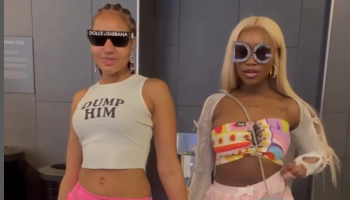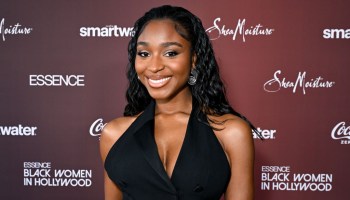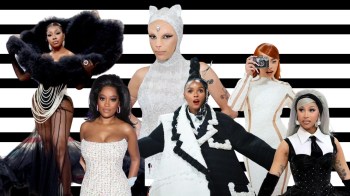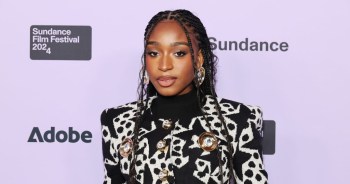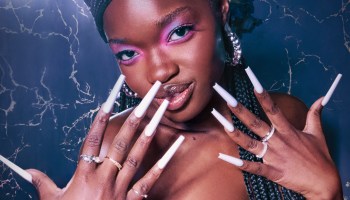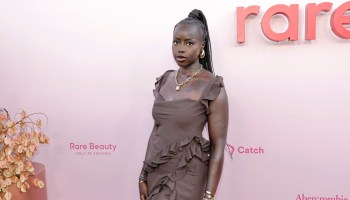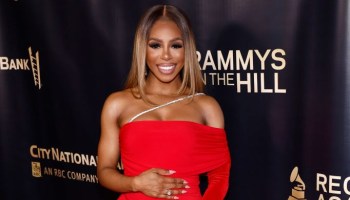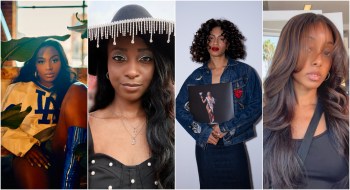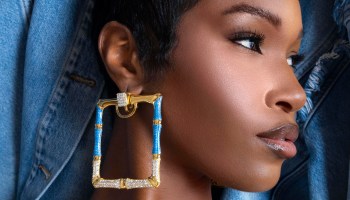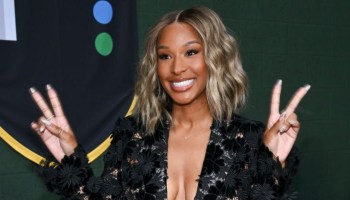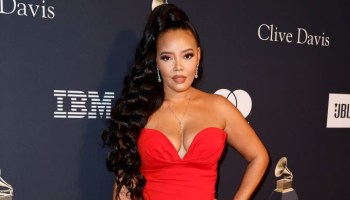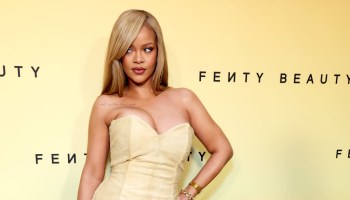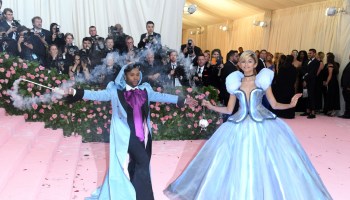“As we await the premiere of Jennifer Lopez and Iggy Azalea’s new music video, it would appear that the big booty has officially become ubiquitous.” -Vogue Magazine
(Editor’s Note: Let us too start with a premise statement: Black women have big booties. We have always had big booties. Black men love big booties. They call themselves ass men, where as White men have traditionally preferred boobs. Black men say this because Black women have big booties. Not having a big booty as a Black girl is kind of like how White girls all dye their hair at 12. It’s legitimately a thing. Yep, Big butts. That’s our thing. Having, loving and celebrating butts has been a Black thing so long, you can mostly credit us with inventing it. Because pretty much, we did. – Leigh Davenport, Editorial Director)
Congrats Vogue, you have realized for the first time ever, that booties–scratch that–bodies that aren’t the rail-thin Vogue standard are actually beautiful too. The iconic fashion magazine has created an internet uproar around their claims that we are “officially in the era of the big booty” all because J. Lo and Iggy will be in a video together called, “Big Booty” of course. These two pop culture phenoms are dancing and attempting to sing/rap about having an abnormally large derrières and that’s all well and fine, but every Black woman in America is mostly like… sweethearts, nobody cares.
I almost don’t even want to be a part of this conversation because…ignorance. I feel like this is the same argument over and over again. White folks have discovered something that Blacks people have always been/done and they’re convinced it’s a new trend, because it’s new to them. Side Eye Don’t worry, I refuse to bring up culture appropriation, Katy Perry or Miley Cyrus here. Well, I will bring up Miley.
MUST READ: The Bigger, The Better! Study Says Women With Big Butts Are Smarter & Healthier
Everyone around the internet who knows anything about butts knows that Vogue’s Patricia Garcia’s musings were extremely misguided. Vogue is historically known for perpetuating a singular image of women: one that is photoshopped into a scarily thin, curveless spectacle, complete with a thigh gap. Editor-in-chief of British Vogue Alexandra Shulman once said, “People always say ‘why do you have thin models? That’s not what real people look like.’ But nobody really wants to see a real person looking like a real person on the cover of Vogue. I think Vogue is a magazine that’s about fantasy to some extent and dreams, and an escape from real life. People don’t want to buy a magazine like Vogue to see what they see when they look in the mirror. They can do that for free.”
And with that, we get this truly profound moment of pop culture writing from the American Version of the mag, lead by Ms. Anna Wintour herself. God bless the author, Garcia, for this nugget:
“A large butt was not something one aspired to, rather something one tried to tame in countless exercise classes. Even in fashion, that daring creative space where nothing is ever off limits, the booty has traditionally been shunned.”
Girl, bye! Who did Garcia talk to for this article? It had to be someone who would literally end it all if she caught her reflection in the mirror and noticed a rounding in her backside, ahem, Gwenyth Paltrow.
Garcia sincerely tried it when she went through a surface level history of booty appreciation. She started with Jennifer Lopez, who does deserve some credit for booty love going beyond the Black community and into pop culture. But when she threw out names like Miley Cyrus, Instafamous butt selfie guru, Jen Selter and the obligatory Kim Kardashian, my eyes rolled so far back into my head, I was able to glance down at my own rear end and thank God I didn’t need Vogue to tell me it was “in.” How insulting is it to look at Miley’s pale and nonexistent behind twerking all over dodge and give it all the praise for allowing women to accept their curves? I’ll answer that. Very.
And then Garcia throws out Blac Chyna, which I suppose was her her way of acknowledging Black women’s contribution to booty appreciation, without ever saying the fucking obvious: It’s Black women’s killer curves and subsequent confidence around those lovely lady lumps that have inspired many of us pancake ass having White women to not only regard large bums as a cool new trend, but something to be proud of! Who knew?!
I want Vogue to know that just because they think something is the flavor of the month, doesn’t mean that it’s never been a thing before. Black women have flaunted our cakes since before Jenny ever thought about leaving the block. Songs like KC & The Sunshine Band’s “Shake Your Booty,” The Commodores’ “Brick House” and E.U.’s “Da Butt” were fun and catchy tunes that showed nothing less than booty appreciation and these songs were out in the 70s and 80s, respectively. Not only did we celebrate our own curves, but music artists were putting out lyrics like:
Walked in this place, surprised to see a big girl gettin’ busy
Just rockin’ to the go-go beat
The way she shook her booty sho’ looked good to me
I said, ‘Come here, big girl, won’t you rock my world?
Show that dance to me’
So when J. Lo decides to say, “Mesmerized by the size of it/You can fight it if you like take your time/I can guarantee you’ll have the time of your life/Throw up your hands if you love a big booty,” I’ll still throw my hands up, but I will not give her or Iggy any credit for making big booties popular. What Garcia did in this article was blatantly say that a Black woman’s beauty, from our thick curves to our juicy lips…none of that ever mattered…until a White girl got her hands on it.
RELATED STORIES:
Butt Injections Can Kill: Everything You Need To Know Before Committing To The Procedure
5 Easy Exercises To Get Your Booty Beach Ready
‘Buti’ Versus Twerk Team: Who Wins In The Business Of Booty Shaking?
Check Out This Gallery Of Cultural Appropriation:









